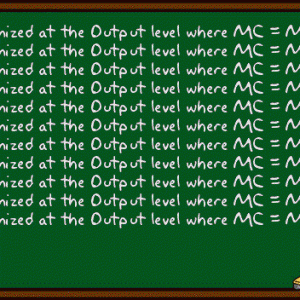Top 5 Books to study Microeconomics Theory
This article suggests and reviews 5 best books on Microeconomics which every graduate student of Economics must read. The article lists books which are suitable for students of all universities and often form the core study material across leading universities.
1. Microeconomics (8th Edition) (Pearson Series in Economics) by Robert S. Pindyck, Daniel L. Rubinfeld, Hardcover: 768 pages, Publisher: Prentice Hall
This book covers all the necessities of microeconomics along with modern introductions such as game theory and Information economics. While the book is not ideal for an introductory course in microeconomics, with prior knowledge the book provides a healthy extensive information with abundant graphs, figures, examples and derivations. Many real world examples have been explained along with information on current economic information. At times the mathematical derivations may skip steps in between but it isn’t anything that would worry a graduate student. Excellent managerial and public policy aspects are covered.
2. Intermediate Microeconomics: A Modern Approach, 8th Edition by Hal R. Varian, Hardcover: 739 pages, Publisher: W. W. Norton
Professor Varian’s text is a must read for every economics graduate. The book features elements of game theory and competitive strategy. While the book does not deliver much on the examples and questions front, it can be well complemented with its workbook. The book delivers very well on the readability front of an otherwise very dry course matter. The book offers a great coverage on the optimisation analysis and will expand the analytic ability of students, while developing a good foundation understanding.
3. Microeconomic Theory by Andreu Mas-Collel, Michael D. Whinston and Jerry R. Green [hardcover]: 1008 pages, Publisher: Oxford University Press
This book is a standard hardcore text found on the shelf of any serious economics graduate. The book offers a much more intense analysis as compared to Varian textbook. The style of writing is formal, explanatory, precise and in-depth analytical. This book is a standard text in the first year graduate study of all top economics programs. The treatment of general equilibrium analysis is best done by this book. The book is fairly heavy handed in mathematical treatment and therefore requires a pre existing knowledge of linear algebra, real analysis and Calculus.
4. Advanced Microeconomic Theory by Geoffery A. Jehle and Philip J. Reny 3rd edition publisher: Prentice Hall
This book is an advanced classical book for graduate study and is quite similar in its analysis to Mas-Collel book. However the theorem proof organisation in the book is much more efficient and rigorous. A lot of detailed proofs are given which provide a much more rigorous treatment as compared to MWG text. Also the book requires a lot more work in terms of its problems and examples than the MWG text. The 3rd edition offers newer extensions in general equilibrium and social choice theory.
5. A course in Microeconomic Theory by David M. Kreps [hardcover] publisher: Princeton university press
The book by Kreps is excellent for developing advanced understanding of microeconomic theory. The book is written in a intuitive manner in a lecture style. There are no standard proofs and theorems but great material for intuitively leading readers to develop these proofs themselves. The portion on choice theory and game theory are excellent. The book is essential for critical understanding of the text as it logically tries to analyse each and every assumption and deduction. It’s a great book not from the viewpoint of answering examinations but for a sound understanding of microeconomic theories.
All of these above suggested books are recommended for graduate studies in Economics. Students can now also take a quick refresher course for Microeconomics help on where our online economics tutors can help students understand Microeconomics theory in a precise and simple manner and can ask your leading economics experts various microeconomics based concepts and questions and receive prompt, perfect and reliable answers for online microeconomics homework.
p.s. Looking for review of Best Books on Macroeconomics ? Here is a list of top 10 books for studying Macroeconomics


